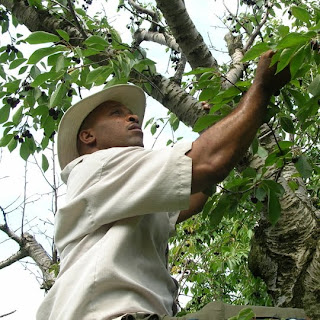I have a friend who is afraid to try to love. He doesn’t see how it can be done, loving someone for a lifetime, continuing to care. It seems impossible to him. He doesn’t think he can do it. He’s right.
Lunch conversation with Michael was one of the good things about the work I loved so much at the University. As I had grown older, more and more of my colleagues ended up being a generation or two younger than me, opening the door for the occasional “avuncular” relationship – allowing me to be “like an uncle”. This was a holy thing to me, because I had benefitted from being on the receiving end of such relationships during my lifetime there. When I was in had been young like Michael, I had befriended older colleagues who comfortably shared their points of view on things that concerned me. I found their perspectives stable and comforting, taken from a long view and solid footing. While I looked at things from my rocking little boat, they seemed to look at the same things from solid ground.
And so it was with Michael, who looked ahead at love, while I looked back, and all around me, finding my self inextricable from the context of my life, which had become a network of loving relationships. Michael saw loving a walking on water, a frightening and unsustainable activity. I saw it as being part of a raft. He often said that he felt calmed by our conversations, felt himself stepping back and sitting down, looking more clearly at things.
But I look back now at the work I loved and I don’t know how I did it. From here in my retirement I find a certain revulsion in the idea of returning to it, the endless mornings driving from the comfort and quiet of home into the needy city, the cars changing gradually from Bimmers to beaters, the faces from white to black, the buildings from being built to being torn down. I don’t see how it could be done, working like that for a lifetime, continuing to care. From where I am, it seems impossible to me. Michael seems to have been right.
I’m reminded of what I said to Michael, and it puts all of that into perspective. Paolo Friere and Miles Horton were two social change guys in the 60’s who graduated from colleges with the determination to lift up the downtrodden of society, to empower the poor in Brazil and in Appalachia. The felt equipped by the studies that they had completed, but soon found that they were completely unprepared for the task. Their 1990 book We Make the Road by Walking speaks the truth that they discovered, the truth for Michael, and for me, and for anybody foolish enough to try to love. Love is something that is created by our effort to love, by our taking one step at a time, one foot in front of another.
Someone gives us a gift – the invitation to love. We are afraid to open it, afraid that maybe we won’t be able to deal with it, won’t have what it requires. I told Michael that every gift is wrapped in what is required for us to handle it. A Jesuit friend, a chemist, told us that food scientists made a mistake by developing oranges that would peel cleanly. The rind, he said, helped us to process the vitamin C in the fruit; the peel enabled us to make best use of the fruit inside. The opportunities to love that we are given in life are not invitations for us to bring our perfectly prepared, perfectly capable selves into a relationship we can handle. They are invitations for us to make the road together by walking…together, each of us lover and beloved, step by step. How quickly, in retirement, I have forgotten that it was the act of walking that made the path walkable, the path that I called work. I was in good company, much of it black faces in beaters, like the simple country people from whom Horton and Friere learned that love is not about capability, but interdependence.
You can search for We Make the Road by Walking at your local library by using Worldcat (click for a link) the search feature on a great blog The Books for Walls Project (click for a link).
 FreeLemonadeStand by John J. Daniels is licensed under a Creative Commons Attribution-Noncommercial-No Derivative Works 3.0 United States License.
FreeLemonadeStand by John J. Daniels is licensed under a Creative Commons Attribution-Noncommercial-No Derivative Works 3.0 United States License.













